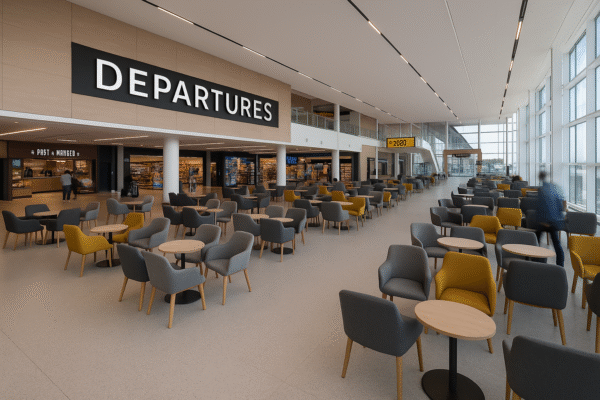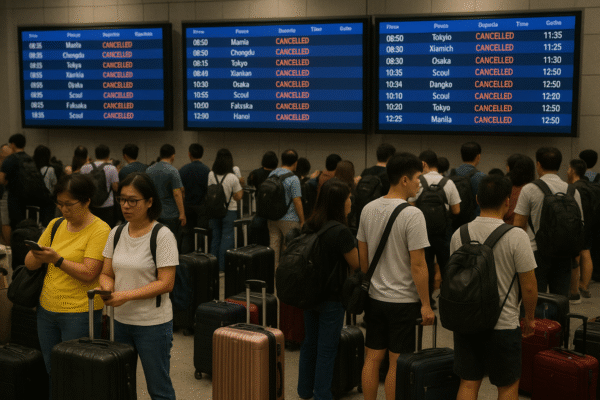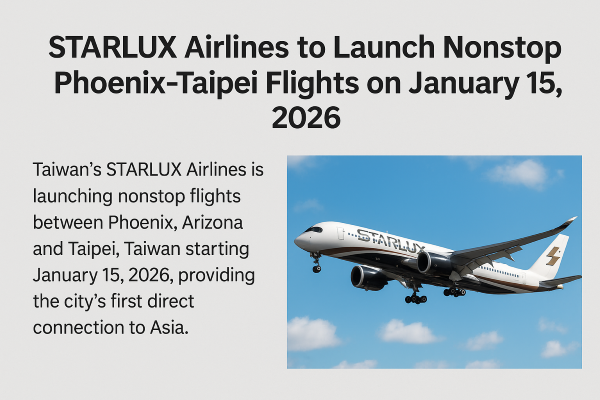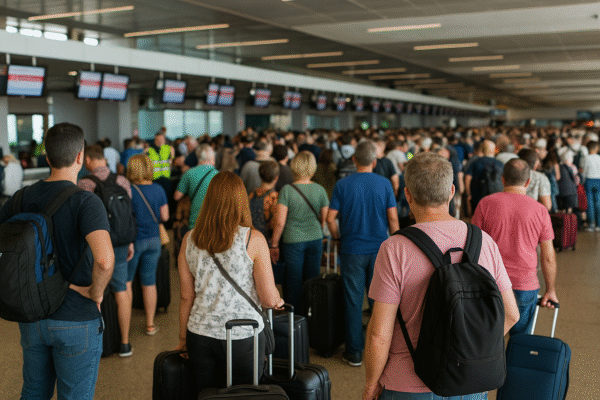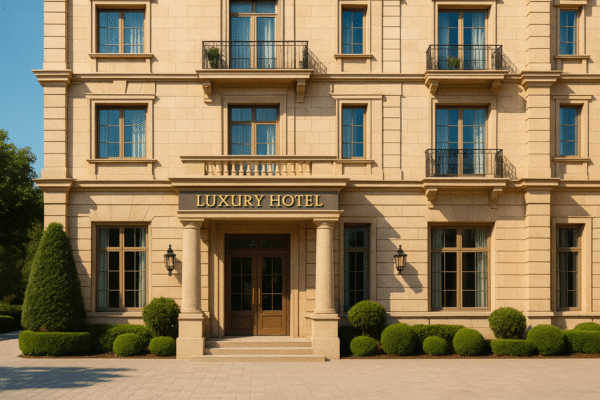The global luxury hotel market is on a strong upward trajectory, with revenues expected to reach $181.5 billion by 2034, according to Allied Market Research. Valued at $113.1 billion in 2024, the market is forecasted to grow at a CAGR of 4.9% from 2025 to 2034. This surge is largely driven by a growing appetite for premium accommodations that blend business efficiency with leisure indulgence—a trend popularly known as “bleisure” travel.
Bleisure Travel Redefines Luxury Hospitality
In today’s increasingly hybrid work culture, the lines between work and vacation have blurred. Business travelers are now extending work trips to enjoy leisure time, demanding high-end accommodations that offer both productivity and relaxation. This trend has resulted in a boom for luxury business hotels and resorts alike. Properties now offer integrated experiences, including co-working lounges, spa services, gourmet dining, and wellness packages tailored for business travelers who value comfort, connectivity, and exclusivity.
According to the Global Business Travel Association (GBTA), over 40% of global business travelers now extend work trips for leisure purposes, leading to longer stays and increased per-guest spending at high-end hotels. This shift is prompting luxury hotel brands to redesign guest experiences with flexible check-in/check-out options, wellness-centric programming, and curated local experiences.
Chain Hotels Dominate the Luxury Market
The market is segmented by type (business hotels, airport hotels, suite hotels, resorts, others) and category (chain vs. independent). Chain hotels continue to lead the luxury segment due to brand consistency, global presence, and robust loyalty programs. According to STR Global, chain-affiliated luxury hotels hold more than 70% of the global luxury room inventory, reflecting strong consumer trust in established names.
Major players like Marriott International, Hyatt Hotels Corporation, InterContinental Hotels Group (IHG), and Hilton Worldwide are aggressively expanding their luxury footprints, especially in Asia-Pacific and the Middle East. Hilton’s Waldorf Astoria, Hyatt’s Alila, and Marriott’s Ritz-Carlton are launching new properties in key financial hubs and resort destinations, catering to the rising demand among affluent travelers.
Airport Hotels See Renewed Demand Post-COVID
Another growing segment is airport hotels, which are benefiting from the rebound in international travel and business aviation. With global passenger traffic recovering steadily, airport hotels are once again playing a vital role in accommodating transit passengers and corporate travelers. Many are being repositioned as wellness-oriented micro-resorts or offering exclusive lounge-style rooms for day-use travelers.
The International Air Transport Association (IATA) reports that global air travel will return to pre-pandemic levels by late 2025, giving an added boost to hotels near major international hubs like Dubai International, Singapore Changi, London Heathrow, and LAX.
Regional Insights: North America and Asia-Pacific Lead Growth
North America remains the largest market for luxury hotels, thanks to high per capita income, robust domestic tourism, and a mature business travel ecosystem. The United States, in particular, dominates this region with high-performing urban markets such as New York City, Chicago, Los Angeles, and Miami.
Meanwhile, the Asia-Pacific region is emerging as a fastest-growing segment, with countries like China, India, Japan, and Thailand experiencing booming inbound tourism, business expansion, and infrastructure investments. According to the World Travel & Tourism Council (WTTC), Asia-Pacific will contribute over 40% of global travel and tourism GDP growth over the next decade, positioning it as a hotspot for new luxury hotel development.
Challenges: Visa Uncertainty and Policy Volatility
Despite strong growth indicators, the luxury hospitality sector is not immune to challenges. Frequent shifts in visa policies, health regulations, and travel advisories—especially following the COVID-19 pandemic—have caused uncertainty among international travelers. In 2022, global international tourist arrivals remained 27% below 2019 levels, largely due to bureaucratic entry restrictions and inconsistent reopening strategies.
These fluctuations have made it harder for hotels—especially in Europe and Southeast Asia—to achieve consistent occupancy rates. Government efforts to digitize visa systems, streamline immigration, and restore traveler confidence are expected to influence luxury hotel performance significantly in the coming years.
Technology and Sustainability Reshape the Guest Experience
In response to evolving traveler expectations, luxury hotels are investing heavily in technology and sustainability. Features such as mobile check-in, AI-powered concierge services, voice-controlled rooms, and carbon-neutral operations are becoming standard. Properties aligned with LEED certification or powered by renewable energy are gaining appeal among eco-conscious travelers.
Many global hotel brands are also focusing on local cultural integration. For instance, Four Seasons and Aman are launching new properties in culturally significant destinations, offering guests immersive experiences like artisan workshops, native culinary classes, and guided heritage tours.
Competitive Outlook
Key players shaping the global luxury hotel market include:
- Marriott International Inc.
- Hyatt Corporation
- InterContinental Hotels Group (IHG)
- Four Seasons Holdings Inc.
- Jumeirah Group
- Kempinski Hotels SA
- Shangri-La International Hotel Management Ltd.
- The Indian Hotels Company Limited (Taj Hotels)
- ITC Hotels Limited
- Jardine Matheson Holdings Ltd.
These brands are strategically launching properties in emerging economies, targeting both traditional leisure travelers and the new-age global nomad demographic.
Conclusion
The luxury hotel market is undergoing a dynamic transformation, driven by the rising convergence of business and leisure travel, technological innovation, and changing traveler priorities. With projections showing a market value of $181.5 billion by 2034, the sector offers ample opportunities for investment, innovation, and strategic growth. As high-end travelers seek more than just accommodation—craving experiences, wellness, and authenticity—the luxury hospitality industry is set to redefine what premium travel truly means.
For more travel news like this, keep reading Global Travel Wire

